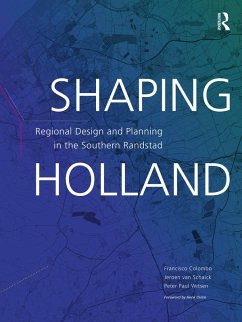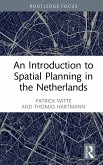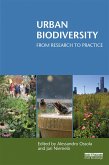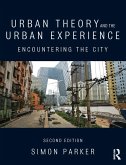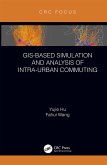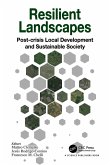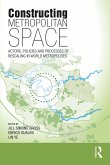Jeroen van Schaick, Francisco Colombo, Peter Witsen
Shaping Holland (eBook, ePUB)
Regional Design and Planning in the Southern Randstad
33,95 €
33,95 €
inkl. MwSt.
Sofort per Download lieferbar

17 °P sammeln
33,95 €
Als Download kaufen

33,95 €
inkl. MwSt.
Sofort per Download lieferbar

17 °P sammeln
Jetzt verschenken
Alle Infos zum eBook verschenken
33,95 €
inkl. MwSt.
Sofort per Download lieferbar
Alle Infos zum eBook verschenken

17 °P sammeln
Jeroen van Schaick, Francisco Colombo, Peter Witsen
Shaping Holland (eBook, ePUB)
Regional Design and Planning in the Southern Randstad
- Format: ePub
- Merkliste
- Auf die Merkliste
- Bewerten Bewerten
- Teilen
- Produkt teilen
- Produkterinnerung
- Produkterinnerung

Bitte loggen Sie sich zunächst in Ihr Kundenkonto ein oder registrieren Sie sich bei
bücher.de, um das eBook-Abo tolino select nutzen zu können.
Hier können Sie sich einloggen
Hier können Sie sich einloggen
Sie sind bereits eingeloggt. Klicken Sie auf 2. tolino select Abo, um fortzufahren.

Bitte loggen Sie sich zunächst in Ihr Kundenkonto ein oder registrieren Sie sich bei bücher.de, um das eBook-Abo tolino select nutzen zu können.
Shaping Holland gives a unique insight into the emergence of contemporary regional planning and design practice in the Netherlands. This book uniquely focuses on planning practice and first-hand knowledge, while also exposing the benefits and the pitfalls of regional plans and designs.
- Geräte: eReader
- mit Kopierschutz
- eBook Hilfe
Andere Kunden interessierten sich auch für
![An Introduction to Spatial Planning in the Netherlands (eBook, ePUB) An Introduction to Spatial Planning in the Netherlands (eBook, ePUB)]() Patrick WitteAn Introduction to Spatial Planning in the Netherlands (eBook, ePUB)20,95 €
Patrick WitteAn Introduction to Spatial Planning in the Netherlands (eBook, ePUB)20,95 €![Urban Biodiversity (eBook, ePUB) Urban Biodiversity (eBook, ePUB)]() Urban Biodiversity (eBook, ePUB)49,95 €
Urban Biodiversity (eBook, ePUB)49,95 €![Urban Theory and the Urban Experience (eBook, ePUB) Urban Theory and the Urban Experience (eBook, ePUB)]() Simon ParkerUrban Theory and the Urban Experience (eBook, ePUB)80,95 €
Simon ParkerUrban Theory and the Urban Experience (eBook, ePUB)80,95 €![GIS-Based Simulation and Analysis of Intra-Urban Commuting (eBook, ePUB) GIS-Based Simulation and Analysis of Intra-Urban Commuting (eBook, ePUB)]() Yujie HuGIS-Based Simulation and Analysis of Intra-Urban Commuting (eBook, ePUB)23,95 €
Yujie HuGIS-Based Simulation and Analysis of Intra-Urban Commuting (eBook, ePUB)23,95 €![Socially Restorative Urbanism (eBook, ePUB) Socially Restorative Urbanism (eBook, ePUB)]() Kevin ThwaitesSocially Restorative Urbanism (eBook, ePUB)54,95 €
Kevin ThwaitesSocially Restorative Urbanism (eBook, ePUB)54,95 €![Resilient Landscapes (eBook, ePUB) Resilient Landscapes (eBook, ePUB)]() Resilient Landscapes (eBook, ePUB)50,95 €
Resilient Landscapes (eBook, ePUB)50,95 €![Constructing Metropolitan Space (eBook, ePUB) Constructing Metropolitan Space (eBook, ePUB)]() Constructing Metropolitan Space (eBook, ePUB)52,95 €
Constructing Metropolitan Space (eBook, ePUB)52,95 €-
-
-
Shaping Holland gives a unique insight into the emergence of contemporary regional planning and design practice in the Netherlands. This book uniquely focuses on planning practice and first-hand knowledge, while also exposing the benefits and the pitfalls of regional plans and designs.
Dieser Download kann aus rechtlichen Gründen nur mit Rechnungsadresse in A, B, BG, CY, CZ, D, DK, EW, E, FIN, F, GR, HR, H, IRL, I, LT, L, LR, M, NL, PL, P, R, S, SLO, SK ausgeliefert werden.
Produktdetails
- Produktdetails
- Verlag: Taylor & Francis eBooks
- Seitenzahl: 284
- Erscheinungstermin: 29. März 2022
- Englisch
- ISBN-13: 9781000550641
- Artikelnr.: 70001279
- Verlag: Taylor & Francis eBooks
- Seitenzahl: 284
- Erscheinungstermin: 29. März 2022
- Englisch
- ISBN-13: 9781000550641
- Artikelnr.: 70001279
- Herstellerkennzeichnung Die Herstellerinformationen sind derzeit nicht verfügbar.
Francisco Felix Colombo (1954) completed his architecture and urban design degree at the National University of La Plata (Argentina) and his Master in Urban and Regional Design (MTD) at the Universities of Delft and Eindhoven (Netherlands). He has extensive international design experience and has won several architectural competitions in Argentina. From 1993 to 2020 he worked as a senior regional designer at the Province of Zuid- Holland, where he contributed to almost all the major regional spatial visions and policies. His design work has been published in numerous policy documents. His practical experience at the Zuid-Holland Spatial Planning and Mobility department centred on regional planning and design in the South Wing of the Randstad. In addition, Francisco Colombo has worked as a design tutor and mentor in architecture and urbanism for forty years, in particular at the National University of La Plata and Delft University of Technology.
Jeroen van Schaick (1978) completed his urban design and planning degree at the Faculty of Architecture and the Built Environment, Delft University of Technology. He stayed on at the faculty as a researcher in the Spatial Planning and Strategy research group and obtained his PhD in 2011. His thesis, Timespace Matters, is on the knowledge gap between social sciences and designers. Jeroen has been working as a strategic spatial planner at the Province of Zuid-Holland since 2010. In recent years he has specialised in futures studies and regional design methods, culminating in research publications on the societal impact of new technologies, the water-food-energy nexus and the book Kracht van Regionaal Ontwerp (the 2018 Dutch edition of Shaping Holland). His publications include work on the Dutch layer approach to planning, urban time planning and new technologies, as well as the books Urban Network - Network Urbanism (2008) and Urbanism on Track (2008).
Peter Paul Witsen (1964) completed his urban and regional planning degree at the University of Amsterdam. He is a scholar, writer and consultant on spatial planning. He specialises in regional planning, having been involved in the making of development plans for areas like the Green Heart of the Randstad, National Park Nieuw Land (New Land) near Amsterdam and the New Dutch Waterline military heritage zone. He currently heads his own consultancy firm Westerlengte. He started his career as a planner with the Institute for Traffic, Logistics and Regional Development at the Organisation for Applied Scientific Research TNO. Between 2000 and 2015 he joined the editorial staff of Blauwe Kamer, the Dutch magazine on landscape and urban design. His publications include The Selfmade Land: Culture and Evolution of Urban and Regional Planning in the Netherlands.
Jeroen van Schaick (1978) completed his urban design and planning degree at the Faculty of Architecture and the Built Environment, Delft University of Technology. He stayed on at the faculty as a researcher in the Spatial Planning and Strategy research group and obtained his PhD in 2011. His thesis, Timespace Matters, is on the knowledge gap between social sciences and designers. Jeroen has been working as a strategic spatial planner at the Province of Zuid-Holland since 2010. In recent years he has specialised in futures studies and regional design methods, culminating in research publications on the societal impact of new technologies, the water-food-energy nexus and the book Kracht van Regionaal Ontwerp (the 2018 Dutch edition of Shaping Holland). His publications include work on the Dutch layer approach to planning, urban time planning and new technologies, as well as the books Urban Network - Network Urbanism (2008) and Urbanism on Track (2008).
Peter Paul Witsen (1964) completed his urban and regional planning degree at the University of Amsterdam. He is a scholar, writer and consultant on spatial planning. He specialises in regional planning, having been involved in the making of development plans for areas like the Green Heart of the Randstad, National Park Nieuw Land (New Land) near Amsterdam and the New Dutch Waterline military heritage zone. He currently heads his own consultancy firm Westerlengte. He started his career as a planner with the Institute for Traffic, Logistics and Regional Development at the Organisation for Applied Scientific Research TNO. Between 2000 and 2015 he joined the editorial staff of Blauwe Kamer, the Dutch magazine on landscape and urban design. His publications include The Selfmade Land: Culture and Evolution of Urban and Regional Planning in the Netherlands.
Introduction 1. Coast 2. Urban growth 3. Landscape The Civil Servant
The Politician
The Director 4. Corridors 5. Regional transit-oriented development 6. Beyond the port The Researcher
The Advisor
The Academic 7. Regional Design Principles for the Future
The Politician
The Director 4. Corridors 5. Regional transit-oriented development 6. Beyond the port The Researcher
The Advisor
The Academic 7. Regional Design Principles for the Future
Introduction 1. Coast 2. Urban growth 3. Landscape The Civil Servant
The Politician
The Director 4. Corridors 5. Regional transit-oriented development 6. Beyond the port The Researcher
The Advisor
The Academic 7. Regional Design Principles for the Future
The Politician
The Director 4. Corridors 5. Regional transit-oriented development 6. Beyond the port The Researcher
The Advisor
The Academic 7. Regional Design Principles for the Future
